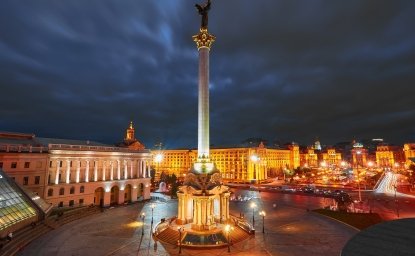European Studies is pleased to welcome summer research scholar Piotr Kosicki, who will be working on a project titled, “Between Catechism and Revolution: Poland, Socialism, and Catholic Politics, 1878-1991.” Dr. Kosicki will be in residence at the Center until June 30, 2012.
Dr. Piotr H. Kosicki specializes in the transnational history of 20th-century Europe, focusing particularly on religion, politics, and the history of ideas. He earned a Ph.D. in History from Princeton University for his work on state socialism’s reshaping of Catholicism in 20th-century Poland and France. Currently under preparation is his book entitled Between Catechism and Revolution: Catholic Europe and the Social Question, 1878-1991, concerning the relationship between Catholicism and socialism in 20th-century Europe writ large. His countries of particular interest are Poland, France, Belgium, Germany, and Italy. Other topics of research interest include the thought and politics of John Paul II, European Christian Democracy, European historical memory of mass violence (especially as it pertains to Polish-German and Polish-Russian relations), and the revolutions of 1989 in global perspective.
Until May 2012, Piotr was on the faculty of the Department of History at American University. He has also taught at the Cooper Union, Princeton University, Sciences Po, and Warsaw University. On 1 July 2012, he begins a joint appointment at the University of Virginia as ACLS New Faculty Fellow in the Department of History and Associate Director of the Center for Russian, East European, and Eurasian Studies.
Recent publications include an edited volume entitled Re-mapping Polish-German Historical Memory: Physical, Political, and Literary Spaces (Bloomington, 2011); “Les lieux de mémoire polonaise de Katyń : d’une fôret à un musée, 1943-2010,” in David El Kenz and François-Xavier Nérard, eds, Commémorer les victimes en Europe : XVIe-XXIe siècles (Paris, 2011); and a forthcoming chapter on Catholicism and the Cold War in the new Routledge Handbook of the Cold War.





